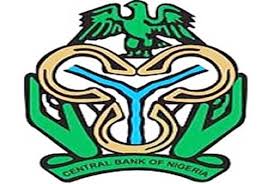Director of Sovereigns at Fitch, Gaimin Nonyane, at a presentation on Monday stated that Nigeria’s current account (CA) will be strengthened by increasing oil refining capacity, but the reforms are still very crucial in attracting foreign investments.
The presentation document noted: “oil recovery and improving oil refining capacity to support C/A, but FDI and portfolio flows depend on FX reform.”
Fitch also highlights the substantial fiscal and monetary reforms Nigeria has undertaken over the past year to stabilize the macroeconomic environment and enhance policy coherence and credibility.
Despite these reforms, Nigeria faces significant challenges in managing its debt. Fitch highlighted that pressure on interest-to-revenue ratios remains high at 38 percent, driven by higher interest rates and structurally low revenue-to-GDP ratios.
The rating agency also projected a decline in Nigeria’s debt costs, although they are expected to remain significantly high.
To mitigate rising debt costs, Nigeria has implemented measures, such as securitization of Central Bank overdraft, reduction in Central Bank financing, as well as revenue mobilization and tax reforms.
Fitch projects that these efforts will lead to a decline in the interest-to-revenue ratio, averaging 34 percent in 2024-2025.
However, this ratio will remain one of the highest among ‘B’ rated sovereigns, indicating persistent fiscal challenges.
Fitch also noted that the country’s gross FX reserves are expected to recover modestly. The success of Nigeria’s economic reforms will largely depend on the sustainable recovery of FX reserves, easing domestic foreign currency supply constraints, and maintaining current account surpluses.
Nigeria has faced substantial inflationary pressures, which Fitch attributes to past exchange rate policies and structural economic issues.
Despite recent policy rate hikes, Nigeria’s real interest rates remain negative. The tight monetary policy aims to curb inflation, which Fitch forecasts will moderate but stay elevated.
Furthermore, Nigeria has made significant progress in exchange rate reforms. The gap between the official and parallel market exchange rates has narrowed, reflecting improved market confidence. Fitch commends Nigeria’s commitment to a more flexible exchange rate regime but cautions that the pace of reforms will be crucial in stabilizing the foreign exchange market and supporting investor confidence.
On May 3, 2024, Fitch affirmed Nigeria’s ‘B-‘ rating while revising the outlook from stable to positive. This positive shift reflects Nigeria’s significant strides in addressing macroeconomic instability through several key reforms.
These reforms include adjustments in exchange rate and monetary policy frameworks, reduction of fuel subsidies, improved revenue mobilization, better policy coordination, and scaling back central bank financing of the government.
“Nigeria’s ‘B-‘ rating is supported by its large economy, developed and liquid domestic debt market, and substantial oil and gas reserves,” Fitch noted.
However, the rating remains constrained by weak governance indicators, high dependency on hydrocarbons, limited crude oil production capacity, low net foreign exchange reserves, high inflation, ongoing security challenges, and structurally low, albeit improving, non-oil revenue.
Regarding the debt service costs, Nigeria spent a sum of N7.8 trillion to service its debt obligations in 2023, a 121 percent increase compared to N3.52 trillion incurred in the previous year, according to analysis of data released by the Debt Management Office (DMO).
The breakdown of the data shows that domestic debt service cost stood at N5.23 trillion, representing a 104 percent increase from the previous year’s N2.56 trillion, while external debt service surged by 167 percent to N2.57 trillion, compared to N962.5 billion recorded in 2022.


